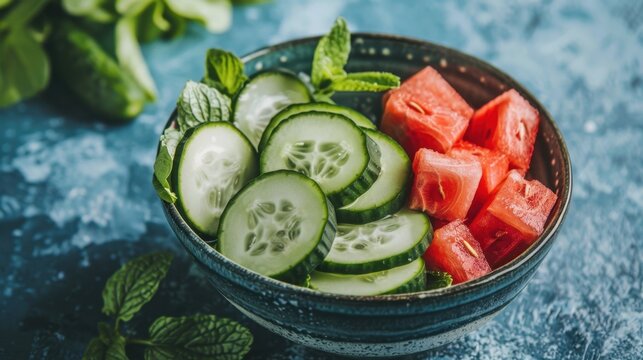Polycystic Ovary Syndrome, or PCOS, is a common condition affecting millions of women worldwide, but its most common complaint is agonizing pain. It could be challenging to deal with PCOS Painful Periods not only physically, but the emotionally aspect will also play along. Yet, the appropriate approach allows you to deal with discomfort caused by such painful periods without serious issues. We will provide possible causes of PCOS painful periods and useful solutions for relieving them in what follows.
What is PCOS and Why Does It Cause Painful Periods?
PCOS is the abbreviation for Polycystic Ovary Syndrome. It is a hormonal disorder that affects how the ovaries work. Common characteristics of the disorder are irregular periods, high levels of androgen, or male hormones, and cyst formation on the ovaries. Typically, painful periods become one common complication due to various reasons like imbalances of female sex hormones, inflammation, and the presence of cysts.
For women with PCOS, the periods tend to be much more painful than they are for women who do not have PCOS. Both an irregularity in periods and hormonal fluctuation contribute to this intense crampiness that a woman with PCOS experiences during her cycle. The first step to relief is to understand what the relationship is between PCOS and painful periods.
Causes of Painful Periods in PCOS
1. Hormonal Imbalance
There is an imbalance in the hormonal system, which is the hallmark of PCOS. These women usually have higher levels of androgens, which interfere with a normal menstrual cycle. This hormonal imbalance may make the uterine lining build up excessively and result in more painful periods.
2. Insulin Resistance
Many women with PCOS also have insulin resistance, in which the body will not react well to sugar. High levels of insulin result in a high production of high androgens, which causes interference in the menstrual cycles and heavy menstrual flow, hence painful menstruations. Balancing insulin helps in minimizing period pain.
3. Inflammation
PCOS is often associated with chronic low-grade inflammation, and this can, therefore, exacerbate menstrual cramps. Inflammation will make the body more sensitive to pain thus making period cramps more intense.
4. Ovarian Cysts
PCOS painful periods may also be caused by ovarian cysts. These are fluid-filled sacs that can cause stinging pain, especially during menstrual periods. Not all women have cysts, but the women who do may experience more severe pain in their periods.
Symptoms of PCOS Painful Periods
PCOS Painful Periods may manifest in several ways, including the following:
- Crampy abdominal pain
- Back pain
- Pelvic pain
- Heavy or light bleeding
- Long periods
- Emotional manifestations like anxiety or irritability
These may vary in severity from cycle to cycle, and it is essential to find the best ease measures.
Practical Solutions for Relieving PCOS Painful Periods
1. Diet and Nutrition
Another best management modality in PCOS Painful Periods is through diet balance. Some foods have been known to reduce inflammation and help normalize hormonal levels; thus, giving the patient some relief from pain during the periods.
- Anti-inflammatory Foods: Incorporation of other anti-inflammatory foods, which include green and leafy vegetables, fatty fish rich in omega-3, berries, and nuts can be incorporated into daily diet to overcome some degree of inflammation in PCOS. Omega-3 has also been found to lessen period pain.
- Balanced Diet: A strong diet intake of whole grains, fruits, vegetables, lean proteins, and healthy fats will help to initiate good hormonal regulation. In diet terms, this means avoiding processed food and refined sugars because they can make insulin resistance and inflammation worse, which enhances pain.
- Hydration: Drinking enough water is a primary mechanism for preventing bloated tummies, which will reduce cramps. Hydration will also support general body functioning and help with the management of PCOS symptoms.
2. Exercise for Pain Relief
Regular exercise can also be very good for the treatment of PCOS Painful Periods. Exercise balances hormones enhances sensitivity to insulin, and decreases inflammation. Additionally, exercise triggers the production of endorphin, a non-pharmacological natural painkiller and can possibly alleviate menstrual pain dramatically.
- Gentle Workouts: Walking, swimming, or even yoga is also possible for those who suffer from painful periods. All the blood flow and muscle tension ease the body without straining too much.
- Strength Training and Cardio: Adding strength training and cardio will help contribute to reducing symptoms generally with PCOS. With regular exercise over time, you can regulate your cycle, reduce inflammation, and even help alleviate painful periods.
3. Stress Management
While stress is inevitable, managing it well plays a crucial role in balancing hormones to improve PCOS symptoms, including painful periods.
- Meditation and Deep Breathing: Mindfulness techniques like meditation and deep breathing calm the nervous system and reduce stress levels. Taking a few minutes of your day to focus on your breath can profoundly impact reducing stress levels.
- Mindfulness: Being attentive to what your body is saying to you, and wisely reacting to the stress can help you decrease the emotional effect of having PCOS painful periods. Doing things that keep you relaxed, such as reading or listening to music, also helps in the reduction of period pain resulting from stress.
4. Medications
Medications, whether bought over the counter or prescribed by a doctor, will help you with your period pains caused by PCOS. You should however consult the best professional who knows you to advise you on medication to use.
- Pain Relievers: Nonsteroidal anti-inflammatory drugs, or NSAIDs, like ibuprofen or naproxen, decrease pain and cramping by reducing inflammation during your period. Such drugs are most effective when taken in the early stages of symptoms.
- Hormonal Birth Control: For women with PCOS, hormonal birth control can help regulate menstrual cycles and reduce pain. Examples of hormonal birth control include oral contraceptives, the birth control patch, or hormonal intrauterine devices. This can help regulate your hormonal balance so that menstruation is less painful and lighter in flow.
5. Natural Remedies
There are several home remedies for natural approaches to treat painful periods with PCOS.
- Herbal teas: chamomile, ginger, and peppermint are herbal teas. These reduce menstrual cramps since they possess anti-inflammatory and muscle relaxant properties for the relief of period pains.
- Heat Therapy: Applying heat to the lower abdomen using a heating pad or hot water bottle will relax muscles and provide relief from cramping because heat increases blood flow to the given area and decreases pain signals.
- Acupuncture and Massage: Acupuncture and massage aid in reducing menstrual cramps because they tend to induce relaxation and improve circulation. It particularly suits women with PCOS with painful periods.
Long-Term Strategies for Managing PCOS Painful Periods
Besides the short-term pain management techniques, long-term lifestyle modifications significantly decrease PCOS painful periods.
- Maintains Healthy Weight: With PCOS, maintaining a healthy weight is pretty important, as being overweight is a contributor to poor hormonal balance and insulin resistance. Women with healthy weights often enjoy more regular and less painful periods.
- Continuity of self-care: Consistency with your diet, exercise, and stress management leads to long-term success. Several daily habits can contribute to several improvements in health and reduction of pain due to menstruation.
- Chart Your Cycle: Keeping a record of your menstrual whether marked by the severity of symptoms assists you in recognizing a pattern and making lifestyle adjustments as needed.
When to Seek Medical Help
Most women with PCOS painful periods can cope with these symptoms through lifestyle changes and over-the-counter medications. However, knowing when to visit a doctor is important. One should see a healthcare provider if period pain is debilitating, significantly interferes with daily activities, or is accompanied by some atypical symptoms such as a heavy flow. Such cases of endometriosis or fibroids might require medical interventions.
Final Thoughts
Managing PCOS painful periods may seem overwhelming at times, but managing such is possible with the right strategies. Some strategies that may help reduce the intensity of your symptoms while making it easier to control your menstrual health include diet and physical exercise. Apart from diet and exercise, one can learn how to manage his or her stress levels along with using natural remedies that may be able to help control the discomfort of your symptoms.
Remember that consistency is key, and little lifestyle alterations make a big difference over time. If necessary, never hesitate to seek medical advice to continue with further treatment options. Living with PCOS is no easy thing in itself, but with the right approach, painful periods need not be something you have to endure forever.











